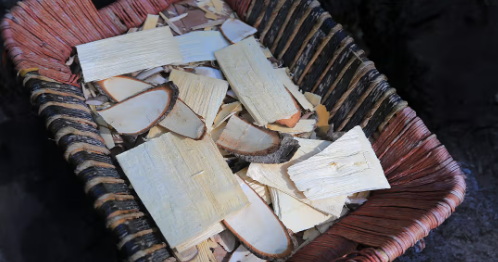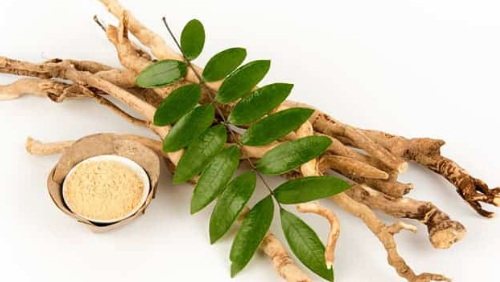Content Menu
● Introduction to Tongkat Ali
>> Traditional Uses of Tongkat Ali
● Safety and Side Effects
>> Common Side Effects
>> Serious Safety Concerns
>> Recommended Dosage
● Long-Term Safety
>> Animal Studies
>> Human Studies
● Benefits of Tongkat Ali
>> Testosterone and Libido
>> Stress Reduction
>> Athletic Performance
>> Energy and Vitality
● Choosing Safe Tongkat Ali Supplements
>> Importance of Standardization
>> Role of Third-Party Testing
>> Reputable Brands
● Potential Interactions
>> Medications to Avoid
● Conclusion
● FAQ
>> 1. What are the recommended dosages of Tongkat Ali for safe use?
>> 2. Can Tongkat Ali cause liver damage?
>> 3. Is Tongkat Ali safe for pregnant or breastfeeding women?
>> 4. Can Tongkat Ali interact with other medications?
>> 5. How can I ensure the quality of Tongkat Ali supplements?
● Citations:
Tongkat Ali, also known as Eurycoma longifolia, is a plant native to Southeast Asia, particularly in Malaysia and Indonesia. It has been traditionally used for centuries to enhance male fertility, improve libido, and boost overall health. The extract of Tongkat Ali has gained popularity worldwide due to its purported benefits in increasing testosterone levels, enhancing athletic performance, and reducing stress. However, concerns about its safety for long-term use have been raised, especially given the limited scientific data available.

Introduction to Tongkat Ali
Tongkat Ali is often referred to as "Malaysian ginseng" due to its energizing properties. It contains bioactive compounds like eurycomanone, which is believed to contribute to its health benefits. The plant has been used in traditional medicine for various purposes, including treating fever, malaria, and sexual dysfunction.
Traditional Uses of Tongkat Ali
Tongkat Ali has been traditionally used for:
- Sexual dysfunction: It is believed to enhance libido and improve fertility.
- Malaria: Used as a treatment due to its antimalarial properties.
- High blood pressure: May help in reducing blood pressure.
- Anxiety: Believed to have calming effects.
- Intestinal worms: Used as an antiparasitic agent.
- Diarrhea and dysentery: Helps in managing gastrointestinal issues.
- Ageing: Thought to improve overall health and vitality.
- Itching and skin conditions: May alleviate itching and other skin issues.
- Post-workout recovery: Used to enhance muscle recovery after exercise.
- Fever: Traditionally used to reduce fever.
- Diabetes: Believed to have potential benefits in managing blood sugar levels.
- Cancer: Some traditional uses suggest it may have anticancer properties.
- Jaundice: Used in treating jaundice due to its purported liver benefits.
- Lumbago: May help in alleviating back pain.
- Indigestion: Believed to improve digestion.
- Leukemia: Some traditional uses suggest potential benefits in treating leukemia.
- Aches and pains: Used to relieve general body aches.
- Syphilis: Traditionally used in treating syphilis.
- Osteoporosis: Believed to improve bone health.
Safety and Side Effects
While Tongkat Ali is generally considered safe when consumed in recommended dosages, there are potential side effects and safety concerns, especially with long-term use.
Common Side Effects
- Gastrointestinal symptoms: Upset stomach and diarrhea have been reported.
- Itching: Some users experience itching as a side effect.
- Insomnia: High doses may lead to severe insomnia.
- Blood glucose levels: May decrease blood glucose levels, which can be problematic for diabetics.
Serious Safety Concerns
1. Liver Injury: There have been rare cases of liver injury associated with Tongkat Ali use. A recent case reported in 2024 involved a 47-year-old male who was hospitalized due to acute liver injuries after taking Tongkat Ali.
2. Heavy Metal Contamination: Some Tongkat Ali supplements may be contaminated with heavy metals like mercury and lead, which can pose serious health risks.
3. Interactions with Medications: Tongkat Ali may interfere with certain medications, such as propranolol, used to treat high blood pressure.
Recommended Dosage
The recommended daily dosage of Tongkat Ali is typically between 200 mg to 400 mg. Exceeding this dosage may increase the risk of side effects.
Long-Term Safety
The long-term safety of Tongkat Ali has not been extensively studied in humans. Most available data come from short-term studies and animal research.
Animal Studies
Animal studies have shown that high doses of Tongkat Ali can cause liver damage and DNA damage in stomach tissues. However, these effects are observed at doses significantly higher than the recommended human intake.
Human Studies
Human studies using dosages of 200–600 mg/day have reported minimal side effects, but long-term safety data are lacking.

Benefits of Tongkat Ali
Despite safety concerns, Tongkat Ali is believed to offer several health benefits:
- Testosterone Boost: It is primarily used to increase testosterone levels, which can enhance libido and improve fertility.
- Stress Relief: Believed to reduce stress and improve mood.
- Athletic Performance: May enhance muscle strength and endurance.
- Energy Levels: Can improve overall energy and vitality.
Testosterone and Libido
Tongkat Ali is often used by men seeking to boost their testosterone levels. Increased testosterone can lead to improved libido and fertility. However, it's crucial to note that while Tongkat Ali may increase testosterone, its effects on fertility are not fully understood and require more research.
Stress Reduction
The stress-reducing properties of Tongkat Ali are attributed to its ability to lower cortisol levels. Elevated cortisol can disrupt sleep patterns and mood, so reducing it may help improve overall well-being.
Athletic Performance
Athletes use Tongkat Ali to enhance muscle strength and endurance. It is believed to improve muscle recovery post-workout, which can be beneficial for athletes undergoing intense training.
Energy and Vitality
Tongkat Ali is often used to boost energy levels. It is thought to improve overall vitality, which can be beneficial for individuals experiencing fatigue.
Choosing Safe Tongkat Ali Supplements
To minimize risks, it's crucial to choose high-quality supplements:
1. Standardized Extracts: Opt for standardized hot water extracts that meet Malaysian standards (MS2409) to reduce the risk of impurities and heavy metals.
2. Third-Party Testing: Ensure the supplement has been tested by a third-party lab for purity and potency.
3. Reputable Brands: Purchase from reputable brands to avoid contamination and ensure accurate labeling.
Importance of Standardization
Standardization ensures that the extract contains consistent levels of active compounds, which is crucial for efficacy and safety. Non-standardized extracts may vary significantly in potency, leading to unpredictable effects.
Role of Third-Party Testing
Third-party testing provides an independent assessment of the supplement's quality. It checks for contaminants, heavy metals, and ensures that the product meets the claimed specifications.
Reputable Brands
Choosing a reputable brand is essential to avoid counterfeit products and ensure compliance with safety standards. Reputable brands typically provide transparent labeling and adhere to strict quality control measures.
Potential Interactions
Tongkat Ali may interact with certain medications, which can lead to adverse effects. It's important to consult a healthcare provider before using it, especially if you are on any prescription drugs.
Medications to Avoid
- Blood Thinners: Tongkat Ali may increase the risk of bleeding when used with blood thinners.
- Diabetes Medications: It may decrease blood glucose levels, which can be problematic for diabetics.
- Blood Pressure Medications: May interact with medications used to treat high blood pressure.
Conclusion
Tongkat Ali can be relatively safe for long-term use if consumed within recommended dosages (200–400 mg/day) and from reputable sources. However, potential risks such as liver injury and heavy metal contamination necessitate caution. It is essential to consult a healthcare provider before starting any supplement regimen, especially for individuals with pre-existing health conditions or those taking medications.

FAQ
1. What are the recommended dosages of Tongkat Ali for safe use?
The recommended daily dosage of Tongkat Ali is between 200 mg to 400 mg. Exceeding this dosage may increase the risk of side effects.
2. Can Tongkat Ali cause liver damage?
Yes, there have been rare cases of liver injury associated with Tongkat Ali use. Individuals with liver conditions should avoid it or consult a healthcare provider.
3. Is Tongkat Ali safe for pregnant or breastfeeding women?
No, Tongkat Ali is not recommended for pregnant or breastfeeding women due to a lack of research on its safety in these populations.
4. Can Tongkat Ali interact with other medications?
Yes, Tongkat Ali may interfere with certain medications, such as propranolol. It's important to consult a healthcare provider before using it with other drugs.
5. How can I ensure the quality of Tongkat Ali supplements?
To ensure quality, choose standardized hot water extracts that meet Malaysian standards and have been tested by a third-party lab. Purchase from reputable brands to avoid contamination.
Citations:
[1] https://akarali.com/is-tongkat-ali-safe-here-is-what-science-says/
[2] https://examine.com/supplements/tongkat-ali/
[3] https://www.rxlist.com/tongkat_ali/generic-drug.htm
[4] https://www.netmeds.com/health-library/post/tongkat-ali-health-benefits-uses-dosage-and-side-effects
[5] https://www.ncbi.nlm.nih.gov/books/NBK609015/
[6] https://www.verywellhealth.com/tongkat-ali-8715064
[7] https://www.medicalnewstoday.com/articles/tongkat-ali
[8] https://pmc.ncbi.nlm.nih.gov/articles/PMC11032125/
[9] https://www.healthline.com/nutrition/tongkat-ali-longjack-review






























